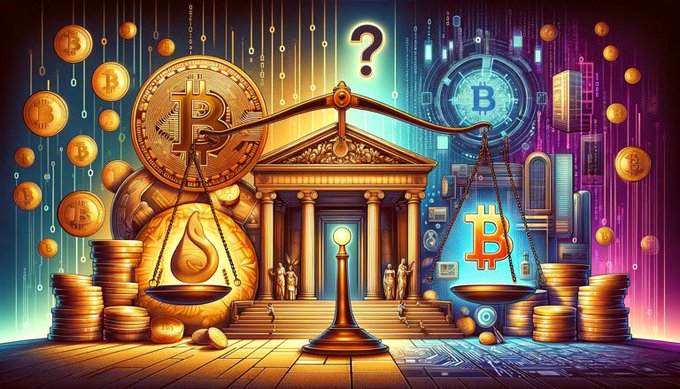Bitcoin's journey to being recognised as a legitimate form of money is as fascinating as it is transformative. From the depths of the 2008 financial crisis, bitcoin emerged as a radical alternative to traditional economic systems. Initially dismissed by many as a digital novelty, its resilience and underlying technology gradually gained attention. What sets bitcoin apart is its designation as the only truly global currency, untethered by national boundaries or central bank policies.
This decentralised nature, combined with its finite supply of 21 million coins, mirrors the scarcity principle that underpins gold's value. However, bitcoin takes it a step further with its absolute scarcity, making it a unique asset in the history of money. Over the years, advancements like the Lightning Network have enhanced bitcoin's functionality, addressing initial limitations and paving the way for its acceptance as a viable medium of exchange.
Bitcoin's divisibility into satoshis (the smallest unit of bitcoin) has solidified its role as a unit of account, capable of facilitating microtransactions impossible with traditional forms of money like gold. The growing institutional adoption and evolving regulation have further bolstered bitcoin's standing as a credible asset class. Bitcoin's evolution from a digital outlier to a recognised store of value, medium of exchange, and unit of account signifies its growing acceptance as a form of money by individuals and institutions worldwide.
Bitcoin's journey from a novel digital phenomenon to a legitimate form of money is marked by its growing ability to fulfil the essential functions of money. Its unique characteristics, technological advancements and increasing institutional and regulatory acceptance are pivotal in this transformation. As the digital economy continues to evolve, Bitcoin's role becomes more entrenched, suggesting a future where it is widely recognised and utilised as real money.Bitcoin as a Store of Value
Bitcoin's evolution as a store of value is evident in its comparison to traditional assets like gold. Gold's value stems from its scarcity, a trait that Bitcoin shares but to a more extreme degree due to its absolute scarcity; only 21 million Bitcoins will ever exist. This finite supply and a predictable issuance schedule halving every four years contribute to Bitcoin's growing perception as "digital gold." Unlike gold, Bitcoin cannot be counterfeited and is easily verifiable, making it a more secure and reliable store of value.
Bitcoin as a Medium of Exchange
Bitcoin's functionality as a medium of exchange has improved over time, especially with the development of technologies like the Lightning Network. This second-layer solution addresses Bitcoin's initial scalability issues, enabling millions of transactions per second with minimal fees and near-instant settlement. This makes Bitcoin increasingly viable for everyday transactions, overcoming problems of portability and divisibility that have historically plagued gold and some fiat currencies.
Bitcoin as a Unit of Account
The divisibility of Bitcoin into smaller units, known as satoshis, enhances its utility as a unit of account. This granularity allows for microtransactions, which is not feasible with traditional forms of money like gold due to its physical properties. As Bitcoin's value increases, the use of satoshis for pricing goods and services becomes more practical, mirroring the way traditional currencies are broken down into smaller units like cents. The finite supply of Bitcoin ensures that these units maintain their value over time, free from the risk of hyperinflation that affects fiat currencies.
Institutional Adoption and Regulatory Recognition
The increasing institutional adoption of Bitcoin and regulatory recognition in various jurisdictions legitimises Bitcoin as a form of money. Despite some scepticism, the influx of institutional investments into Bitcoin-based products indicates growing confidence in its viability as an asset class. Regulatory frameworks being developed around Bitcoin also provide a more stable and predictable environment, encouraging wider adoption.
Bitcoin's journey from a novel digital phenomenon to a legitimate form of money is marked by its growing ability to fulfil the essential functions of money. Its unique characteristics, technological advancements and increasing institutional and regulatory acceptance are pivotal in this transformation. As the digital economy continues to evolve, Bitcoin's role becomes more entrenched, suggesting a future where it is widely recognised and utilised as real money.






